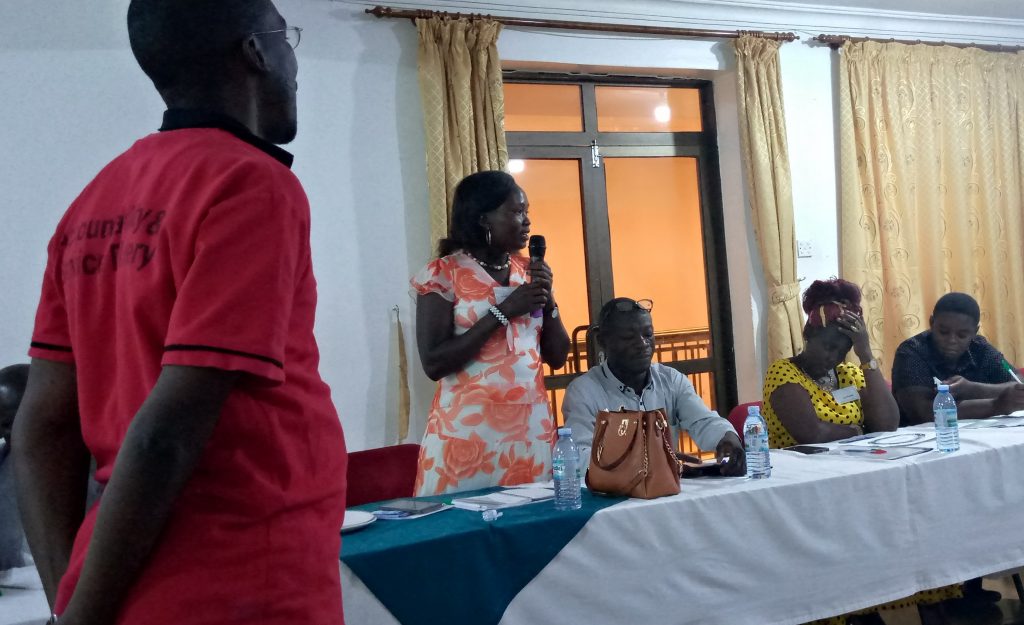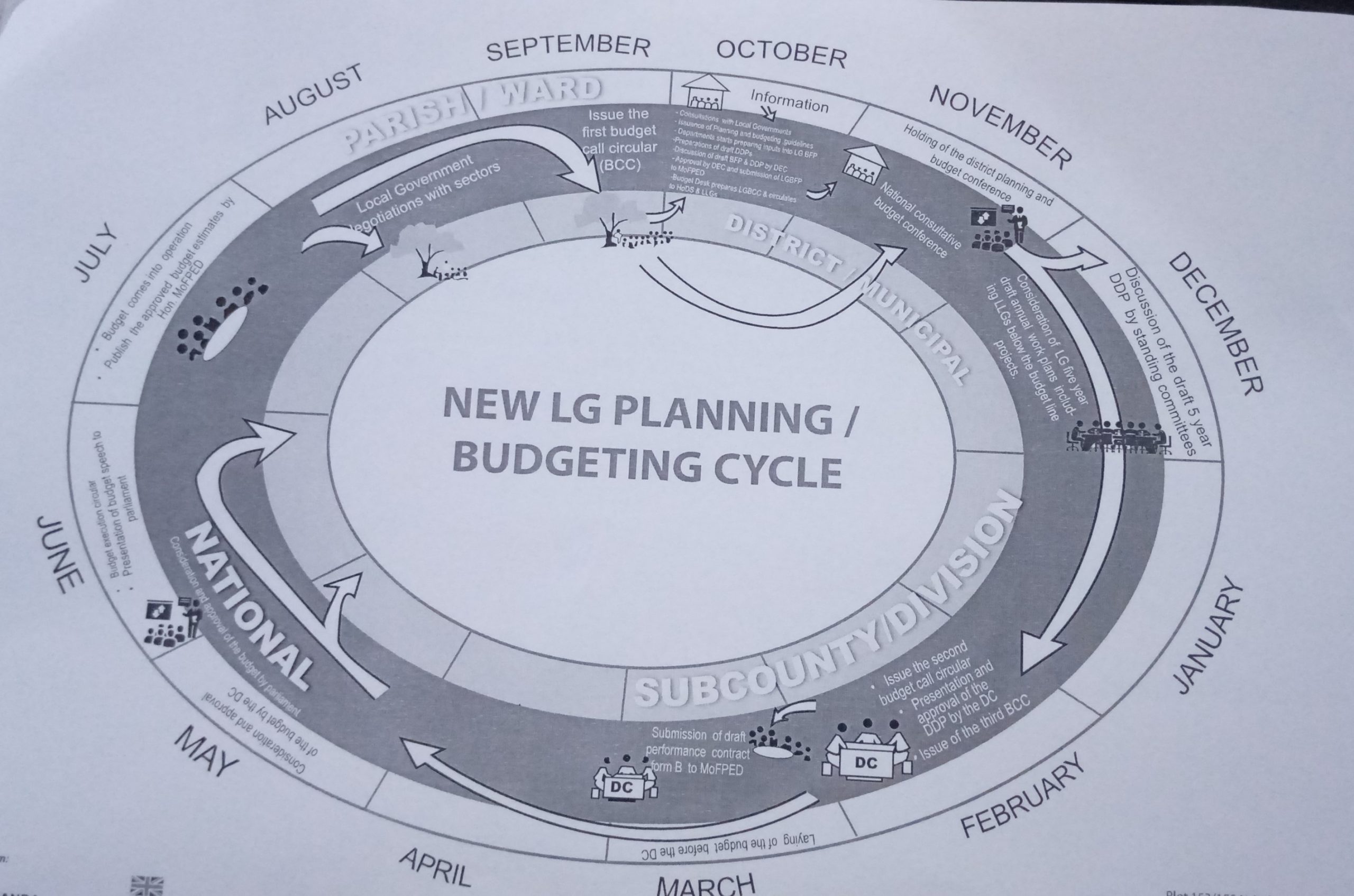Julius Kapwepwe, programs director- at Uganda Debt Network (UDN) is conducting an awareness on the planning and budgeting process in Uganda. Every government institution has to show how they are complying with gender and equity.
It is important for activists and CSO leaders working on public budgets to have contacts of key stakeholders such as the RDC, CAO, DISO, District Planner, Members of Parliament, Chairperson, SAS, Accountants, DEOs and CDOs and engage them on various issues affecting their communities. It is advisable to engage as a group or even a network.
As advocates need to build movements of citizens who are regularly and actively participating in the public planning and budgeting process.
The process should be evidence based, Ugandans are advised to read and analysis district, local government and national government budgets to be able to influence decision making in issues facing them.
The state officers at first will be suspicious on what interest you have when following up with budgetary allocations but always as an activist be clear with your objectives and let them be known to anyone who cares to listen.
As we discuss about budget advocacy, let us bear in mind that the state has three core obligations: to protect, respect and fulfill human rights. The core obligation to fulfill was of great interest to us as we discussed enjoyment of economic, social and cultural rights.



